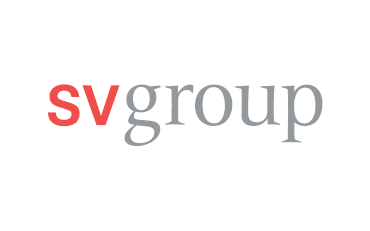Partnership with SV (Schweiz) AG 2021
Together with WWF, SV Schweiz launched the sustainability program “ONE TWO WE” in 2013. At the core of the program are tailor-made sustainability plans for establishments managed by SV Schweiz and raising awareness among guests.

The measures implemented to contain the SARS-CoV-2 coronavirus had a massive impact on the catering industry. WWF and SV (Schweiz) AG have therefore agreed to extend their goals to 2023 for CO2 reduction, seafood with regard to Score 1+2, and the label products.

CLIMATE AND ENERGY
SV Schweiz pursues ambitious climate goals — compatible with the Paris Climate Agreement — and tries to reduce additional environmental impact along the entire value-added chain as well. For example, SV Schweiz exclusively offers carrots with the IP-Suisse quality mark and sources tomatoes and peppers from greenhouses that are not heated with fossil fuels.
Greenhouse gas reduction SV Switzerland
This goal has been extended to 2023, see disclaimer above. The greenhouse gas emissions of SV Switzerland (SBT Scope 1-3) are to be reduced by 17% per main meal by the end of 2023 (compared to 2018). The scope comprises all business areas of SV Switzerland.
In 2021, an increase of 1.2% was registered compared to 2012 (current absolute value 2021: 2.58 kg CO2e per sold main course).
Comment: The ongoing measures in 2021 to contain the spread of the new SARS-CoV-2 coronavirus had a massive economic impact on the catering industry. Planned projects to develop measures for further CO2 reduction had to be further suspended.

FISH AND SEAFOOD
Since 2019, SV Schweiz has committed to continuously increasing the share of fish from recommendable or acceptable sources according to the WWF in order to promote biodiversity.
Share of recommendable, or acceptable sources, according to WWF, relative to the total seafood range
In 2019, SV Schweiz set itself the goal of increasing the sustainability of its entire fish range. By the end of 2021, the entire offer of marine fish, shellfish, mussels, and freshwater fish should be either farmed or caught in the wild from sources identified as very recommendable, recommendable, or acceptable by WWF. The scope comprises the entire fish and seafood range of SV Schweiz.
In 2021, the share of fish and seafood from very recommendable, recommendable, and acceptable sources relative to the overall range was increased from 98% (in 2019) to 99.2%.
Comment: Due to a lack of information on the origin of a few products, the target was not achieved by a narrow margin. SV Group is working on closing these information gaps.
In addition, there were individual catering cases where already planned products, were no longer available at the time of order. Therefore, substitute products with a lower score had to be used.
Share of sources identified by WWF as recommended relative to the overall seafood range
This goal has been extended to 2023, see disclaimer above. The share of very recommendable and recommendable sources according to WWF should be at least 80% of the total amount purchased by SV in one year in kilograms by 2023. The scope comprises the entire fish and seafood range of SV Schweiz.
In 2021, the share of fish and seafood from recommendable sources increased from 81.3% to 84.4%. SV Schweiz has thus since achieving its goal in 2020 further increased the share of recommendable sources.

SUSTAINABLE CONSUMPTION
SV Schweiz promotes sustainable consumption by increasing the share of label products in the food it uses. Special climate-friendly meals are offered to raise awareness among guests which are meatless, contain few milk products, and do not contain products transported by air. They are also prepared primarily from seasonal products.
Share of recommended label products relative to overall revenue
This goal has been extended to 2023, see disclaimer above. To promote sustainable consumption, SV Schweiz has set itself the goal of increasing the share of label products that are recommendable at a minimum, to at least 15% by the end of 2023. The revenue of label products to overall goods revenue is measured; meat, poultry, and fish are not included.
In 2021, the share of label products increased from 13.0% (2019) to 14.6%.

